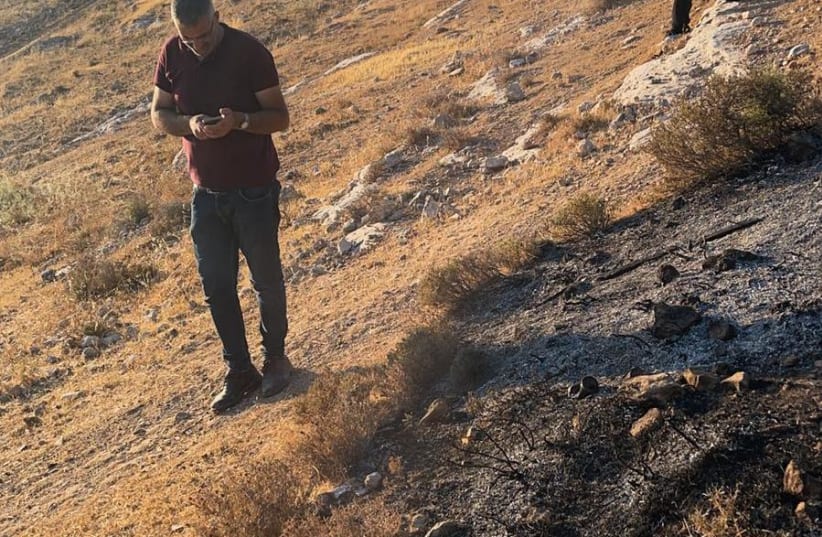The activists were Imad Abu Shamsiyya, a photographer for B'Tselem who documented the controversial Elior Azaria case, and Araf Jabber.
Im Tirtzu claimed that the torched land fell under Israeli control and that the two activists, not Israeli citizens, sparked the fire on the hill in order to prepare it for agricultural activities in the future to allow Palestinians to take the land.B'Tselem denied that the hill was under Israeli control, claiming that the land in question belongs to Jabber.
"This is not the first time that links between activists in anti-Zionist propaganda organizations working with foreign governments and the New Israel Fund and terrorist acts have been linked," said Matan Peleg, chairman of Im Tirtzu. "For the terrorists and seekers of Israel's evil, these are different activities in nature but with the same purpose. Sometimes it is found that these are the same people."
"The anti-Zionist organization B'Tselem has never done anything good with the millions of dollars it feeds on from foreign countries, but only makes a living from the existence of the conflict and takes care of perpetuating it," said Peleg. "The Israeli government must act immediately to reduce the funding of foreign governments for delegitimization organizations operating in Israel.""The fact that the Israeli security forces are arresting Palestinians who are cultivating their own land - the plot in question belongs to Jabber - is more indicative of the apartheid regime than of its victims," said B'Tselem in response to the arrests. "B'Tselem's video project also seeks to document this reality of such harassment aimed at the oppression and expropriation of Palestinians from their land."
